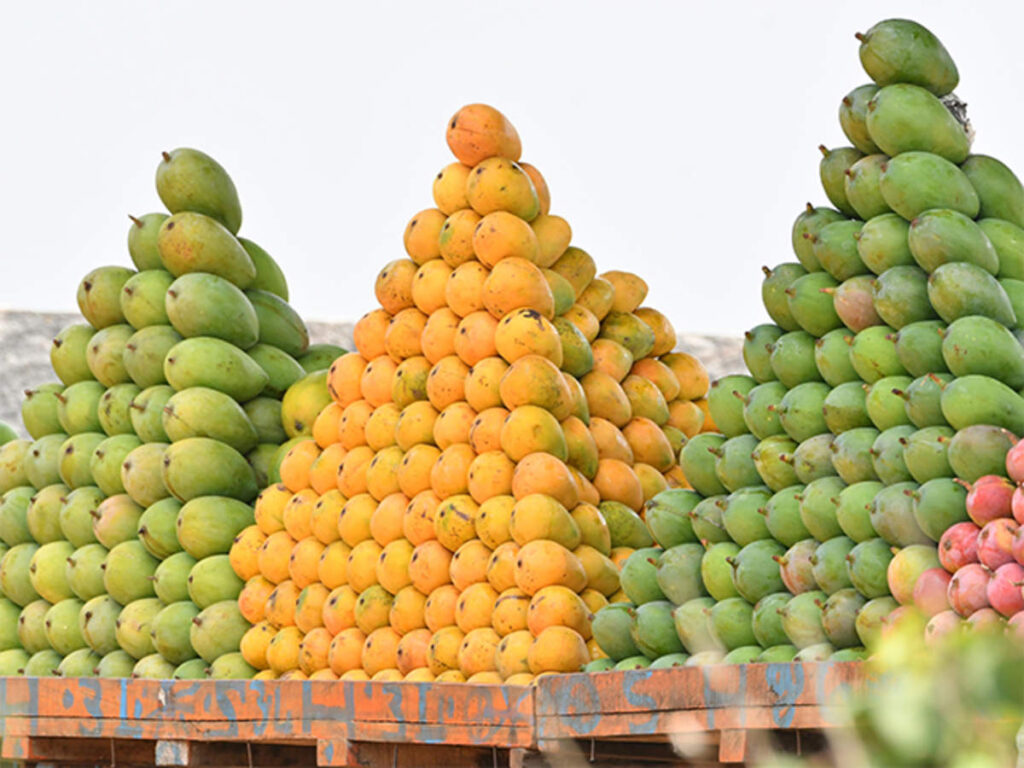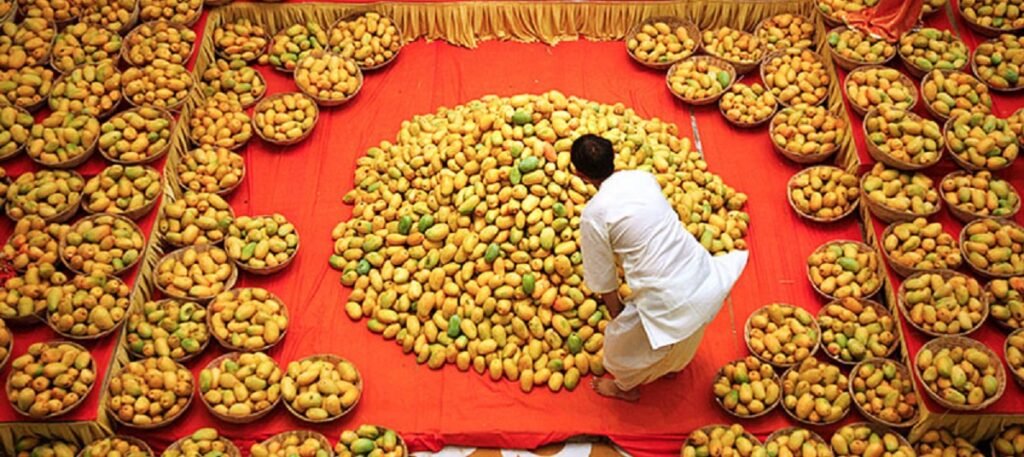LAHORE: Climate change, torrential rains, flooding, and pests are posing problems for farmers, despite mangoes holding the top position in the food chain.
The harsh summer months in Pakistan find their saving grace in mangoes. Farmers plant mango trees as six to 18-month seedlings or grafted shoots during fall and spring. The trees need consistent soil moisture and moderate winds to grow steadily and healthily. As they mature, mango trees develop short, stout trunks and thick, circular canopies of green leaves. Within approximately five years, they produce clusters of thin, pale yellow flowers that outnumber the deep green leaves. Remarkably, a single mango tree can bear fruit for over 40 years.

Due to their delicate nature, mangoes are highly susceptible to bruising. Hence, they are harvested when still relatively unripe and carefully placed in wooden crates. During shipping, selling, and storage, the mangoes naturally ripen over time. Once fully ripened, it is advisable to store them in cool temperatures to halt further ripening and avoid spoilage.
Climate change, similar to other life-sustaining forces, is causing disruptions in mango growth patterns in Pakistan. The water shortage in Punjab caused by unexpected heatwaves last year resulted in more than a 50% setback to mango production and export targets.
Mangoes originate from mango flowers known as bhur. After blooming, the mango tree relies on moderate winds and soil with balanced moisture, neither too dry nor too wet, but with a consistent clay-like texture. This dependence on predictable natural forces is particularly prominent during the hot summers in Punjab. Unfortunately, due to the occurrence of untimely storms and rainfall in the typically green province, the strong winds and excess water have resulted in the withering and falling of acres of bhur from the mango trees. Consequently, Punjab has experienced a significant decline in mango production.
Cyclonic rains have adversely affected mango production in the region with high chloride content causing significant damage. Climate change and poor management practices lead to excessive rain, moisture, and pest attacks that damage unripe fruit. When natural factors such as climate change and excessive rainfall combine with governmental failures, the outcome manifests in the form of distorted and inferior mangoes.


